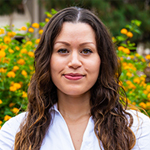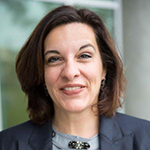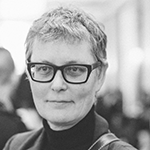Climate Council Members
Mission Statement
The Dean’s Climate Council is an initiative appointed by the Dean of the UCI School of Humanities and helmed by the Equity Advisor and Special Assistant to the Dean for Equity, Inclusion, and Diversity that addresses inequitable working conditions, epistemological and discursive Othering, and institutionalized violence within the humanities. Council members serve for twelve-month terms, collectively amplifying and supporting both existing and emerging community-engaged research, listening sessions, professional development, partnerships, workshop opportunities, scholarly publications in the field, and similar initiatives. Ultimately, the Climate Council aims to develop a deeper and more robust capacity for transformative change on campus starting with the School of Humanities. Together, we are building the conditions for expanding action-oriented equity, inclusion, and diversity.The goal of the Climate Council is to create a deliberative assembly for representation and action on equity, inclusion, and diversity in the School of Humanities. We are charged with building working capacity, benchmarks, deciding on and about and normalizing and increasing successful and substantive commitments to these values as part of our everyday practices of research, writing, teaching, and professional activities. We seek to highlight and share best practices developed in SoH with partnering campus units and professional associations. We strive to elevate these values and the research and creative activities that advance them by pursuing and securing grants for pathways programs and collaborating on and authoring publications focused on equity, inclusion, and diversity. UC Irvine is federally recognized as a Minority Serving Institution, a Hispanic Serving Institution, an Asian American- and Native American Pacific Islander-Serving Institution. As an institution, we are bound by federal and state laws for advancing equity and diversity for people in numerous protected categories including but not only gender expression, national origin, and disability status. The State of California recognizes the following protected categories, race, color, national origin, religion, sex, gender, gender expression, gender identity, gender transition status, pregnancy, physical or mental disability, medical condition (cancer-related or genetic characteristics), genetic information (including family medical history), ancestry, marital status, age, sexual orientation, citizenship, or service in the uniformed services, including protected veterans.
We are also a First-Generation Serving Institution, a Low-Income Serving Institution, and a campus that aims to become a Black Thriving Institution. The Climate Council has a mandate to plan for a brave present and to build a more courageous future through educating and preparing the next generation. We aim to catalyze, support, and recognize transformative servant leadership, public service, creativity, teaching, and research excellence in higher education by underrepresented minorities, women, gender nonbinary, and trans people in Humanities, in this state, society, and the world. We also aim to support action-oriented and transformative dialogues, policies, and practices, in order to advance more just ways of implementing and advancing equity.
| Member | Biography |
|---|---|
 | Annabel Adams, executive director of marketing and communications for the UCI School of Humanities, advances equity and inclusion through storytelling and multimedia projects. She produced the award-winning video series “The Welcome Table with Sydney and Tatum,” which centers UCI’s Black students, faculty, and staff. The project is now centrally funded by the Office of Inclusive Excellence. She is most proud of her work as a mentor to countless students who seek career guidance in marketing and communications, and as a consultant to faculty and graduate students seeking to amplify their research among public audiences. In winter 2021, she completed the UCI Inclusive Excellence Certificate Program. |
 | "Who am I? Who wants to know? So few people ask. But I find ways to tell my story anyway. Word of warning: it frequently changes. The story I’m telling now is how I’ve never belonged here. Part of the problem is I’m too gay for some, not gay enough for others. I’m deeply in love with many forms of culture, high and low, but my education is not elite, and so my tastes are suspect. (I’m reminded of this periodically by colleagues; one even insinuated that I had an affinity for “trash.”) But I value what people say about themselves, the stories they tell about their communities, and how they are trying to find survivable lives — high or low. I need to know how to survive, so I need diverse stories in my life (and if you don't, I suspect something is wrong with you, or your privilege is IMMENSE). Storytelling is just the best tool I have for getting to know people and their experience of the world, and for inviting them to know me. So who am I? I am a gay queer bi non-cis formally working-class first-generation college graduate disabled whiteboy feminist who has spent much of his career trying to make other outsiders feel comfortable and safe in a place that has never felt safe for him. I must be crazy. But here I am." - Jonathan Alexander, Chancellor's Professor of English |
 | Alex Borucki’s work focuses on the history of Africans and African-descendent people in Latin America. In his courses, he examines the differences about perceptions of race and ethnicity across the Americas and the larger Atlantic world before 1900. Students learn about racial and ethnic labels strange to them while studying Latin America and Africa. This challenges them. Borucki hopes this strangeness, rather than discouraging them, serves to illustrate, first, the non-universal nature of North American understandings and, second, the unnatural character of categories of difference as conceived by the language of race. He also organizes academic, educational, and outreach activities within and outside UCI on the history and cultures of Latin America, and on the role of Latin America and Latin Americans in the United States and the larger world. |
 | Larisa Castillo is an Associate Professor of Teaching in Humanities Core and the Director of Pedagogical Development for the School of Humanities. Since 2016, she has worked to advance inclusivity and equity training for teachers at UCI. In Humanities Core, she created the Humanities Core Inclusive Pedagogy Program; as Director of Pedagogical Development, she developed the Pedagogical Humanities Certificate program for Humanities graduate students, which incorporates training in anti-oppression and mindfulness pedagogies. Larisa was an inaugural member of the Office of Inclusive Excellence's Certificate Program. Some of her most recent work on equity and inclusion in higher education has included participation in OIE's "Anti-Blackness in the United States" program, #Academics4BlackLives's "Academics for Black Survival and Wellness" module, the UCI Humanities Center's 1619 Project, and the UCI End Racism Initiative workgroup focused on "Curricular Culture and Pedagogical Structures." She sits on the Climate Council's subcommittee on graduate student wellness. |
 | Annalisa Coliva advances Equity and Inclusion as a member of the Climate Council for the School of Humanities, as well as through the AICRE + Philosophy Pivot. As Chair of the Department of Philosophy, she has led a successful campaign to diversify the department. She also leads the "Mentoring Women and Minorities in Philosophy Project," which targets graduate and undergraduate students. |
 | Desha Dauchan designs courses for diverse new filmmakers and screenwriters. Many of those courses marry theory, history and practice. She curates reading and screening lists to represent a wide range of voices and perspectives. Her service activities intrinsically address underrepresented communities and advance inclusive excellence. Dauchan’s efforts and support of School of Humanities activities like Activist Studio West and the Black Panther Oakland Community School Research cluster are aimed at increasing the pipeline of underrepresented groups here on campus. On campus and abroad her service as a moderator, contest judge, conference presenter, and festival judge all address the needs of culturally diverse voices the film & media field. As a filmmaker and writer, Desha centers Black, Muslim, Women characters and families thus organically advancing these underrepresented groups' visibility her works. Desha’s ardent hope is that her nuanced approach to storytelling about these subjects and communities contributes to lifting barriers that prevent understanding about them. Dauchan’s engagement with festivals like Blackstar Film Festival and Los Angeles Asian Pacific Film Festival as an invited filmmaker enhances her knowledge of patterns of participation and advancement of underrepresented groups in exhibition and community building opportunities. |
 | For Bambi Haggins, associate professor in film & media studies and visual studies, her commitment to equity and inclusion is rooted in both personal and pedagogical experience. As a Black working-class woman at an elite PWI as an undergraduate, and a non-traditional graduate student at another, understanding difference and negotiating spaces not designed for her has always been a part of her personal and professional career. Her teaching and scholarship interrogate the disparities and distortions between the lived experiences of marginalized people and their representation across American media. She is in her first year as a DECADE mentor for visual studies and her third on the Antiracism, Equity and Diversity Committee for the Society of Cinema and Media Studies. |
 | Linda Haghi advances equity and inclusion in the UCI School of Humanities primarily through her work leading fundraising for the school. Fundraising requires a sensitivity to each individual's needs, preferences, and communication styles. She works with donors, faculty, staff, and students from very diverse backgrounds. To do this work well requires respect and understanding of diversity and a commitment to continual learning about diversity and inclusion. |
 | After earning her B.A. in business economics and minor in accounting from the University of California, Irvine in 2018, Angeline Hernandez began her work in the field of higher education. She had previous administrative experience spanning three years as an undergraduate in supporting international students in the School of Engineering at UCI and became interested in pursuing a career in higher education administration. As the Administrative Analyst for the Program in Global Languages & Communication at UCI, she works closely with a large, diverse body of students, lecturers, and other staff members. She is committed to continued learning and engagement in conversation within the Climate Council and in taking action centered on advancing representation, diversity, equity, and inclusion within the School of Humanities. |
 | Victoria E. Johnson advocates for equity and inclusion through her research, publications, and pedagogy as they are focused on questions of critical race theory, cultural geography, and the politics of everyday popular media with a focus on television and its digital extensions as well as on sports media and its broader ecosystem. Her service roles as past-chair of the Department of Film and Media Studies, and campuswide on UCI senate committees, as well as externally, for the Society for Cinema and Media Studies, have prioritized diversification, inclusion, and retention of underrepresented students, scholars, and professionals. |
 | Jerry Lee practices the principles of equity and inclusion by trying to learn from noncanonical voices and continually adapting his perspective. This is done, for instance, by being mindful of whose work is being referenced in his scholarship and how, and by making active decisions about ensuring diverse representation in the texts he assigns in his teaching. These practices allow him to learn and relearn rather than assuming he has everything figured out, which is critical for any member of a “re-search” university more generally. |
 | Julia H. Lee advocates for equity and inclusion with her mentorship of undergraduate and graduate students as they pursue research that expands our understanding of the experiences of marginalized communities. She teaches courses on Asian American popular culture, race and urban space, Asian American stories, and Asian American communities. She is currently working on a book that examines the role of the railroad in the formation of race in American cultural productions dating from the nineteenth century to our present moment. |
 | Mark LeVine advocates for equity and inclusion through his research on and teaching about marginalized populations and communities across the Middle East and Africa. Most recently, he helped create and direct the Global Middle East studies program and major, where courses focus on issues of gender, indigeneity, colonialism, and race. |
 | Annie McClanahan engages with issues of inclusion and access in her scholarship, especially through her work on student debt, precarious labor, and the politics of care work. She is also committed to expanding educational opportunities for prisoners: she taught college-level courses at San Quentin State Prison from 2003-2010, serves as a writing mentor with the Asian Prisoner Support Community, and is an organizer with the UCI-LIFTED program, an initiative to help incarcerated people earn UC bachelor’s degrees. |
 | Jon L. Pitt is Assistant Professor of Japanese Environmental Humanities in the East Asian Studies Department. He is accountable to Equity and Inclusion through his research on the ways in which environmental science and philosophy are entangled within histories of Japanese colonialism, war, and migration. His research engages with writers and filmmakers who attempt to diminish the perceived divide between nature and culture and thus create new possibilities for thinking about environmental justice. Pitt further champions E&I in the classroom, seeking to empower students to think and write critically in order to develop their own voices within academia. He also advocates for alternative modes of scholarship, like podcasting, that broaden the scope of accessibility. |
 | Penny Portillo’s work in diversity, equity, and inclusion (DEI) has centered around staff development and education. She encourages staff participation in campus DEI programs such as the Inclusive Excellence certificate, the Black Thriving series, and allyship programs; she and over a dozen other SOH staff attended Inclusive Excellence courses in 2020. She participated in the 2.5 day Undoing Racism workshop led by PISAB, and has completed ally programs such as SafeZone (LGBTQ) and ZotAbility. She completed and required SOH managers to complete the UC Implicit Bias series as a prerequisite to conducting staff recruitments. Portillo has recommended staff for leadership programs and has helped many colleagues prepare for and receive promotions. Portillo and Facilities Director Colin Andrews have implemented facilities projects to support campus communities, such as: creating a lactation room in Krieger Hall; ensuring a gender inclusive restroom was added to the Humanities quad; and successfully advocating for automatic doors to be added to all building and department entrances. She is committed to ongoing learning, listening, and taking action to foster a climate of wellness in the SOH. |
 | R. Radhakrishnan most recently was the Equity Advisor for the School of the Humanities and is currently a DECADE mentor. He is committed to a pedagogy of persuasive education and revolutionary literacy that combats every form of bias and discrimination. He also believes in a perspectival and relational universalism that begins with Black Lives Matter as its major thesis. He is also on the OIE task force that is looking into evaluating faculty contributions to diversity. He is eternally grateful to all his students for what he has been learning from them. |
 | Amanda Jeanne Swain, Ph.D., is the executive director of the UCI Humanities Center. She works with School of Humanities faculty and graduate students to obtain external funding, establish centers and research clusters, design public-facing projects, and navigate academic systems. She supervises the Humanities Center staff team that provides program and administrative support for nearly 20 centers, research clusters, and programs. In Spring 2021, she completed the UCI Inclusive Excellence Certificate Program, including the modules on Confronting Anti-Blackness. She also participated in the June 2020 Academics 4 Black Lives training. She is involved in campus and national efforts to transform humanities graduate education, including leadership roles in the School of Humanities Next Generation Ph.D. grant from the National Endowment for the Humanities and two Mellon Foundation grants. |
 | Jennifer Terry advocates for equity and inclusion through teaching and writing on gender and sexual variance, the history of racism and misogyny in science and medicine, and the centrality of Black women in liberation movements. She chaired the department of Gender & Sexuality Studies for eight years and established the Queer Studies minor program in 2005. She has mentored a UCI Dream Fellow and advised many first-generation students of color over the past 17 years at UCI. She serves on the Humanities Climate Council, the Center for Medical Humanities Executive Committee, and the campus-wide Committee on Privilege and Tenure, each of which support equity, inclusion, and ethical engagement in university life. |
 | Heidi Tinsman, professor of history, contributes to equity and inclusion through research and teaching on gender, race, and labor in modern Latin America and a commitment to training a diverse cohort of graduate student scholars and teachers specializing on Latin America. She is a zero-percent appointment in the Gender and Sexuality Studies Department and longtime member of the Radical History Review Editorial Collective. |
 | Judy Wu emigrated from Taiwan at the age of six and grew up in Spokane, Washington. Currently a professor in the Department of Asian American Studies and the director of the UCI Humanities Center, she earned her Ph.D. in U.S. history from Stanford University in 1998 and previously taught at Ohio State University. Her research and teaching focus on analyzing intersecting social hierarchies, such as those based on race, gender, sexuality, and citizenship. Wu tends to explore how individuals form identities and navigate/protest social inequalities. She is committed to fostering intellectual communities that collectively engage with these issues. She values the opportunity to mentor graduate and undergraduate students to become scholars and artists who seek to change our world for the better. |
